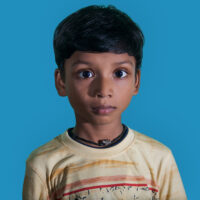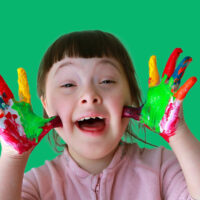Guides
Each mental health Guide contains evidence based research. Whether you are new to the Topic or want to find the latest research, here is your starting point.
Select a Topic from the list below, or use the submenu above.
-

Digital Interventions
Many digital technologies are designed to be used in adjunct to established mental health treatments, not to replace them. Learn more with this Topic Guide.
Read more -

DLD – Developmental Language Disorder
Developmental language disorder (DLD) is diagnosed when a child’s language skills are persistently below the level expected for the child’s age. In DLD, language deficits occur in the absence of a known biomedical condition, such as autism spectrum disorder or Down syndrome, and interfere with the child’s ability to communicate effectively with other people.
Read more -

Eating Disorders
Eating disorders: an introduction to anorexia nervosa, bulimia nervosa and other eating disorders. From this topic guide, you can find the latest blogs, events, publications, videos and podcasts.
Read more -

Intellectual Disabilities
Many terms have been used to describe an intellectual disability (ID) or medical conditions linked to an ID. Some terms that were originally designed to describe levels of intellectual disability or specific medical conditions, have unfortunately become part of common derogatory language used within society and so have become insults.
Read more -

OCD – Obsessive Compulsive Disorder
People with Obsessive Compulsive Disorder (OCD) experience unpleasant and intrusive thoughts, images, doubts or urges (called obsessions) and repetitive behaviours (called compulsions). Compulsions are usually carried out as a way of reducing the distress caused by obsessions. OCD takes many different forms and causes distress and interference to day-to-day life.
Read more -

-

Psychotherapies
Psychotherapies are commonly used therapies for children and young people. They can help children and families understand and resolve problems, change their behaviour and change the way they think and feel about their experiences.
Read more -

Self-harm & Suicide
Self-harm is an increasingly recognised phenomenon and one of the strongest predictors of suicide, which continues to be one of the leading causes of death in young people worldwide. Self-harm can take many forms and may present with or without suicidal intent and both in the context of mental disorder, and without.
Read more -

School-based interventions
Children and young people spend a great deal of time at school, so it has an important role to play in their development. Time spent in school impacts not just on academic and cognitive progress, but also on social interactions, peer relationships, emotional regulation and behaviour. All these areas affect, and are affected by, mental health (Fazel et al, 2014).
Read more -

Sleep
Children and adolescents who are experiencing difficulties with their mental health also often struggle with their sleep. Indeed disrupted or altered sleep has been associated with most psychiatric disorders (Gregory & Sadeh, 2016). Although a range of sleep difficulties can co-occur with mental health problems, a common difficulty is insomnia. As such this guidance will primarily focus on difficulties with getting to sleep and staying asleep.
Read more